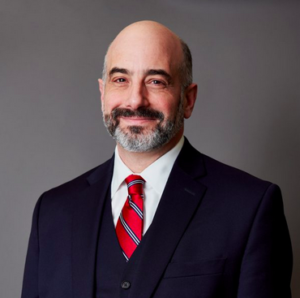By Doron Krakow

The setting was an estate on Long Island—a one-time family home now an elegant retreat center about an hour from midtown Manhattan. The topic was talent and the professional pipeline of the organized Jewish community, and along the way I found myself in a meeting with the heads of the major denominations of congregational Judaism as well as the leaders of their seminaries. The senior representative of the JCC Movement in warm, casual, and thoughtful conversation about our shared concerns regarding the need for a more robust pipeline of rabbis and brainstorming models for creative recruitment, training, and deployment of those tasked with the spiritual nourishment of our people. Imagine that.
It was just one of a host of sessions in which senior executives of many of the Jewish community’s most significant organizations and institutions sat with representatives of a dozen major Jewish foundations to confer, debate, and deliberate around shared challenges and a common commitment to energize recruitment and retention efforts for both current and prospective members of our separate and shared professional ranks.
Formal sessions were thoughtfully organized and ably facilitated, and copious notes were taken. Leading figures in our field graciously offered unique perspectives and insights mingled with warmer, more casual comments. I was struck by the sense of familiarity and informality in session after session, reflected in both longstanding connections and in relationships just begun. A roomful of heavyweights—funders and practitioners, dreamers and visionaries, charged with responsibility both for our present and our future. Yet there was precious little posturing, posing, or preening. They had made space in their incredibly busy professional lives to sit together with us as colleagues.
Although the formal schedule featured specific sessions devoted to challenges, opportunities, and solutions, the agenda seemed more about tilling the soil than about a possible harvest. As is often the case, the conversations and exchanges between the sessions—over lunch or at the pub at the end of the day—may well have been the most meaningful because that is where personal ties grow and deepen. It is, after all, from just such connections that new and unforeseen partnerships are sometimes born.
I thought about that over coffee with Rabbi Rick Jacobs, head of the Union for Reform Judaism (URJ). Our relationship had begun in a similar way—an informal chat over coffee at some otherwise more formal get together—a conversation that gave rise to others and a sense of shared purpose and common cause.
It was coincidental, I suppose, that this gathering preceded by a day the lead item in yesterday’s eJP about Project-412, a major collaboration among JCC Association, the URJ, Jewish Federations of North America (JFNA); three leading foundations; and 14 pioneer communities intended to break the logjam on the dearth of teachers in our early childhood Jewish education programs. Over the next three years, Project-412 will work to bring more than 400 new teachers into the field and launch them in meaningful careers that will be embraced by the wider Jewish community. Four hundred new teachers will provide us with capacity to add thousands of Jewish families to our ranks—greater Jewish community personified.
Project-412 began as nothing more than a recognition by two Jewish community leaders—colleagues who had come to see one another first as allies and then as friends—that together we might be able to achieve something neither could accomplish alone. More than that, we understood it would be far more meaningful and impactful to take on the challenge in partnership, a model others might replicate. So it was with Project-412 when Eric Fingerhut brought JFNA aboard. The unusual alliance intrigued and impassioned our partners at the Jim Joseph Foundation, Crown Family Philanthropies, and the Samuels Family Foundation, and, well, the rest is history. This week’s announcement of the appointment of Project-412’s professional leadership team is the final piece of the puzzle ahead of its launch this summer.
After more than a year of preliminary exploration, the partnership was first announced at the URJ Biennial in December 2019, heralding another year of work. Multiple task forces, spearheaded by some of the top lay and professional leaders in our field, including expert planners, practitioners, and scholars, forged ahead. Their work gave rise to recommendations on design and development. Notwithstanding the onset of the pandemic, the work continued unabated.
Four years in the making and here we are, getting Project-412 underway. Its anticipated successes, in years to come, will be scaled across the continent, making it possible to add tens of thousands of Jewish families to our ranks. Tens of thousands of families taking part in early childhood Jewish education, the preeminent gateway to Jewish communal engagement at a formative moment in their lives. Intentional and measurable outcomes.
And it all began with a friendly chat between colleagues who found in one another a kindred spirit, like-minded partner, and ally—a treasured friend.
הִנֵּה מַה טוֹב וּמַה נָּעִים שֶׁבֶת אָחִים גַּם יַחַד | Hinei mah tov umanayim, shevet achim gam yachad | Behold how good and pleasant it is for people to sit together.
Shabbat Shalom.
*
Doron Krakow is President and CEO of the JCC Association of North America